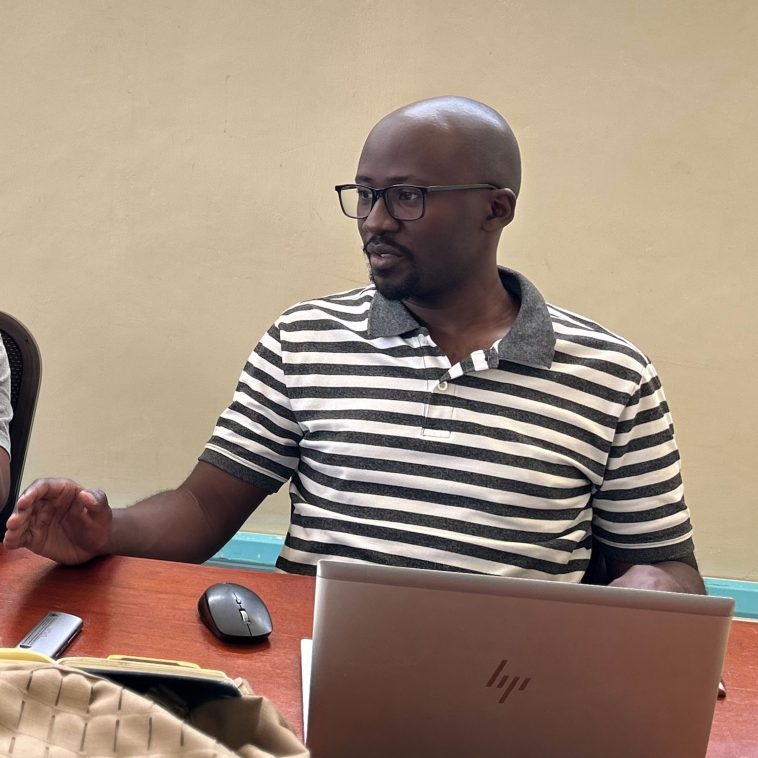For some time now, I have introduced myself as a Digital Evangelist as often as I can. My profiles, bios and resume also read “Digital First. Always.” and go on to talk about CyberSecurity and staying safe online depending on how many characters I have available.
I’ve not yet gotten used to the wide range of reactions I get whenever I have introduced myself as a Digital Evangelist in face-to-face conversations! Some of the more common ones include:
– Wow! Sounds cool. And important!
– What is a Digital Evangelist? Never heard of that!
– and silence.
– Is that even real? Joshua, you just made that up, right?
SO WHAT REALLY IS A DIGITAL EVANGELIST?
I was thinking I should just copy and paste from a dictionary and leave a link for you to click and read more, but it has turned out a little bit more complicated.
“No results found for digital evangelist” is the answer I got when I queried www.dictionary.com.
“0 results for digital evangelist. Did you mean: televangelist” says www.thesaurus.com.
I didn’t bother going further down that road, checking other dictionaries and websites, and to save you the trouble as well, I’ll tell you MY definition.
As a Digital Evangelist, I advocate for a Digital-First approach to life. Business, work, personal finance, health, government, everything.
I know, I dropped another big word while trying to demystify one!
DIGITAL FIRST
A Digital-First approach is a shift from being reactive to being proactive about technology.
As you can imagine, there is no shortage of perspectives and schools of thought on this subject, and many people will have definitions which better fit their industry or work, but this summarizes it as comprehensively and simply as possible, making it equally applicable in your personal life, business and large corporations or governments.
LET ME ILLUSTRATE:
MARKETING: Instead of leaving digital assets to accidentally support your newspaper ads or sales and marketing foot-soldiers walking around Kampala, implement integrated digital campaigns and benefit from synergy across.
PERSONAL FINANCE: Instead of taking photos of your receipts “for backup”, use a smartphone app to record your expenditure and analyse your personal finances.
LOCAL BUSINESS: Instead of delivering food to your restaurant’s customers to supplement your income, set up a delivery department to drive sales online and have the walk-ins supplement instead.
HUMAN RESOURCE: Instead of struggling to get your employees to ‘limit smartphone time’ to be productive, give them tools on their smartphones to track their time and help them be more productive.
GOVERNMENT: Instead of blocking social media websites, support and guide your citizens to use social media for business and constructive dialogue!
I know, I also can’t believe I went there! But yes, it’s high time we run a Digital-First government! There’s been some progress lately, but unfortunately, it’s great in some pockets, operating largely in silos unable to benefit as a whole. I’ll give some examples of success stories operating alongside saddening failures another day!
To be fair, the government has invested significantly in developing an enabling environment for growth through legislation, policy development and ICT infrastructure, and the Ministry of ICT & National Guidance, and National Information Technology Authority (NITA-U) have been in the news regularly, celebrating milestones or winning global awards.
We shall and need to give credit where it’s due, but let’s not pretend that as a country, we’re digital yet.
CYBERSECURITY
One aspect of a digital world that I am more passionate about is Cybersecurity because of the need for us all to be safe on the internet. As we become more reliant on digital technology, taking advantage of all the great advancements, the threats that we face online have also grown, and personally, I believe Cybersecurity is close to the top of the list, if not at the very top.
In fact, it’s not just my personal inclination, but research over the years lists several cybersecurity threats ahead of others. The 2023 World Economic Forum’s (WEF) Global Risks Report put cybersecurity in the current and future top 10 risks globally.
Delivering a keynote at a major IT Security Conference last year, Chuck Robbins, Chair and CEO at Cisco Systems said cybercrime, if it were measured as a country, would be the world’s third-largest economy after the U.S. and China. The cost of damages inflicted by cybercrime is projected to hit an annual $10 trillion by 2025.
Closer to home, there was a 10.8 per cent increase in the number of cybercrime cases reported, according to the Uganda Police Crime Report of 2022. The Daily Monitor reported that nearly UGX 20bn was lost to cybercrime in 2022, which is barely scratching the surface, given that the true cost of the damage inflicted goes way beyond the actual money lost and that many cybercrimes have gone unreported for various reasons.
LETS TALK
In subsequent posts I will get into more detail, addressing many aspects of Cybersecurity that I have already taken note of, but also answering questions and comments that will arise as we discuss on the various platforms where I’ll be sharing these. I will also be talking to key people in leadership in government, private sector and non-government organisations, and continuing research for my MSc. Cyber Security and other cybersecurity professional certifications.
Please copy and paste them freely as they come in, share in your networks and let’s keep the conversation going, for, as ISC2 puts it, “A safe and secure cyber world.”
josh (at) joshtwin (dot) com.
This post was created with our nice and easy submission form. Create your post!





